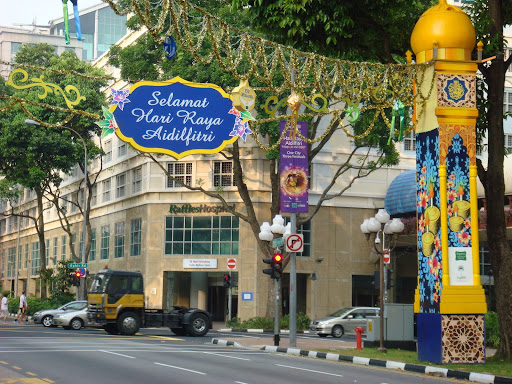Each of us will learn something new each year as we perform our fasts during Ramadan; our spiritual development will evolve and progress with the increasing level of our maturity as well as with the amount of effort we put into understanding our religion (and ourselves consequently).
Here is what I learnt during Ramadan 2008.
1) Human Emotions - Despair
Positive feelings and emotions can be a motivational factor for us to want to continue to do good things in life. For instance, I think one of the reasons why Muslims (or anyone else) pray is that we attain a positive sense of well-being, and this is one of the driving factors for us to continue to pray. God does not need our prayers, we are the ones who need them - to keep us well-adjusted in this world, and also for the next world. "But those will prosper who purify themselves, And glorify the name of their Guardian-Lord, and (lift their hearts) in prayer" (Quran 87:14-15). The key is obviously to start - and once we do, it positively reinforces us to continue to do so.
But all of such negative emotion is unnecessary, and also a huge waste of time and energy. We will, of course, face obstacles in life. No one is immune to them. But that should not be an occasion to be wallowing in despair and forget our spiritual obligations.
It follows then that in times of difficulties, we should be continuing our spiritual obligations, and asking for help from God so that our troubles may be eased.
Anything else is simply unislamic. Why? Because if we are on the right path (by keeping up with our spiritual obligations) then we should also realise that God does everything for a purpose, and we should try to look for meaning in the things that cause us problems. And we should also realise that God can do whatever He wishes whenever He wishes, and that He will heed people’s prayers.
So is there really any need for despair when faced with obstacles, and to even dare to proclaim that all in this life for yourself (because of whatever problems) is only blackness, doom and gloom? Such people are caught in their own self-reinforcing cycle of negativity; and they worsen their situations by putting a halt to any activities in their lives that may bring light and clarity because they are too focused on the negative state of their lives.
2) Remembrance of Frailty of Human Life and the Hereafter
So we do not know what exactly the future holds despite all of our massive plans. With one stroke, God can disrupt even the best of plans. So what is this human propensity to plan every minute detail of our life, as if only we with our own powers of planning can determine what happens in our lives.
This is not to say, we cannot plan for the future. We can and should; otherwise, we would be all leading directionless lives. But since we cannot fully foresee the outcome of our plans, we should act now and be hoping for the best.
That leads to the second realization - we may not be around to see the result of our plans because we do not know when our time may come. Reading of Surah 67 (Al-Mulk) of the Quran reinforces the frailty of our human state; it reminds us what we will all have to face eventually - that is, God's judgement.
'They will further say: "Had we but listened or used our intelligence, we should not (now) be among the Companions of the Blazing Fire!"' (Quran 67:10).
If we cannot comprehend our religion, it would be better to listen to the more knowledgable. And if we are blessed with intelligence, we should use it rightly so that we are not placed in a situation where we will feel regret at not having done so.
So those are the lessons I had during Ramadan. And probably I will have more understanding as time progresses.
What were your Ramadan lessons?






